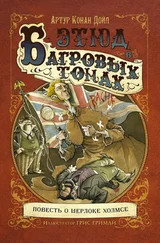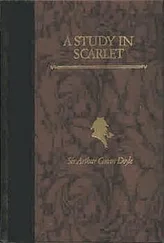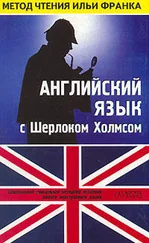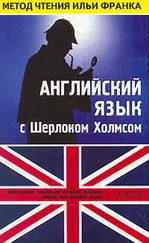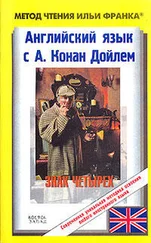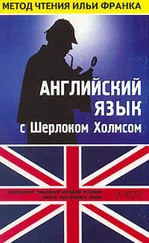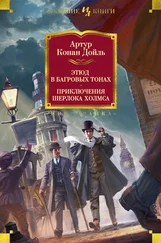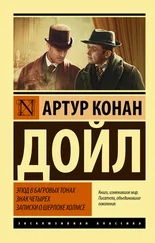mourn [mO:n], burial ['berI@l], bier [bI@], circlet ['s@:klIt]
The prediction of the Mormon was only too well fulfilled. Whether it was the terrible death of her father or the effects of the hateful marriage into which she had been forced, poor Lucy never held up her head again, but pined away and died within a month. Her sottish husband, who had married her principally for the sake of John Ferrier's property, did not affect any great grief at his bereavement; but his other wives mourned over her, and sat up with her the night before the burial, as is the Mormon custom. They were grouped round the bier in the early hours of the morning, when, to their inexpressible fear and astonishment, the door was flung open, and a savage-looking, weather-beaten man in tattered garments strode into the room. Without a glance or a word to the cowering women, he walked up to the white silent figure which had once contained the pure soul of Lucy Ferrier. Stooping over her, he pressed his lips reverently to her cold forehead, and then, snatching up her hand, he took the wedding-ring from her finger. "She shall not be buried in that," he cried with a fierce snarl, and before an alarm could be raised sprang down the stairs and was gone. So strange and so brief was the episode, that the watchers might have found it hard to believe it themselves or persuade other people of it, had it not been for the undeniable fact that the circlet of gold which marked her as having been a bride had disappeared.
For some months Jefferson Hope lingered among the mountains (несколько месяцев Джефферсон Хоуп бродил по горам; to linger — задерживаться) , leading a strange wild life (ведя странную, дикую жизнь) , and nursing in his heart the fierce desire for vengeance which possessed him (и лелея в своем сердце яростную жажду мести, обуявшую его; desire — страстное желание; to possess — овладевать, захватывать) . Tales were told in the City of the weird figure which was seen prowling about the suburbs (в городе ходили слухи о загадочном силуэте, не раз виденном в пригородах; tale — рассказ; басни, россказни; weird — таинственный, жуткий; странный; figure — личность, фигура; to prowl — красться, бродить) , and which haunted the lonely mountain gorges (и обитавшем в глухих горных ущельях; to haunt — жить, обитать) . Once a bullet whistled through Stangerson's window and flattened itself upon the wall within a foot of him (однажды пуля просвистела через окно Стенджерсона и расплющилась о стену в футе от него) . On another occasion, as Drebber passed under a cliff a great boulder crashed down on him (другой раз, когда Дреббер проходил под скалой, огромный камень рухнул на него; boulder — валун, глыба, большой камень; to crash — с грохотом рушиться) , and he only escaped a terrible death by throwing himself upon his face (и он избежал ужасной смерти, только бросившись ничком на землю) . The two young Mormons were not long in discovering the reason of these attempts upon their lives (два молодых мормона недолго искали причину этих покушений на их жизни; to discover — обнаруживать, раскрывать, узнавать) , and led repeated expeditions into the mountains in the hope of capturing or killing their enemy (и неоднократно организовывали экспедиции в горы в надежде схватить или убить своего врага; to lead — вести; возглавить; to repeat — повторять) , but always without success (но каждый раз безуспешно) . Then they adopted the precaution of never going out alone or after nightfall (затем они из предосторожности взяли за правило: «приняли предосторожность» никогда не выходить из дома в одиночку или после наступления ночи) , and of having their houses guarded (и организовали охрану своих домов: «приняли предосторожность … не выходить … и иметь свои дома охраняемыми») . After a time they were able to relax these measures (через некоторое время они стали соблюдать эти правила не так строго: «смогли ослабить эти меры») , for nothing was either heard or seen of their opponent (так как их врага не было ни видно, ни слышно) , and they hoped that time had cooled his vindictiveness (и они надеялись, что время остудило его мстительность; vindictive — мстительный) .
suburb ['sVb@:b], whistle [wIsl], precaution [prI'kO:S(@)n], [vIn'dIktIv]
For some months Jefferson Hope lingered among the mountains, leading a strange wild life, and nursing in his heart the fierce desire for vengeance which possessed him. Tales were told in the City of the weird figure which was seen prowling about the suburbs, and which haunted the lonely mountain gorges. Once a bullet whistled through Stangerson's window and flattened itself upon the wall within a foot of him. On another occasion, as Drebber passed under a cliff a great boulder crashed down on him, and he only escaped a terrible death by throwing himself upon his face. The two young Mormons were not long in discovering the reason of these attempts upon their lives, and led repeated expeditions into the mountains in the hope of capturing or killing their enemy, but always without success. Then they adopted the precaution of never going out alone or after nightfall, and of having their houses guarded. After a time they were able to relax these measures, for nothing was either heard or seen of their opponent, and they hoped that time had cooled his vindictiveness.
Far from doing so, it had, if anything, augmented it (отнюдь, если оно и имело какой-то эффект, то, скорее, распалило ее; to augment — усиливать) . The hunter's mind was of a hard, unyielding nature (охотник по природе обладал упрямым и непреклонным умом; hard — жесткий, несгибаемый; to yield — уступать) , and the predominant idea of revenge had taken such complete possession of it (и преобладающая мысль о мести настолько овладела им) that there was no room for any other emotion (что там не осталось места для других эмоций) . He was, however, above all things practical (однако он был, прежде всего, практического склада) . He soon realized that even his iron constitution could not stand the incessant strain which he was putting upon it (он вскоре понял, что даже его железный организм не сможет вынести те постоянные нагрузки, которым он его подвергал; constitution — конституция, телосложение) . Exposure and want of wholesome food were wearing him out (жизнь под открытым небом и недостаток полноценной пищи изнуряли его; exposure — подвергание какому-л. воздействию; выставление, оставление /на солнце, под дождем и т. п./; to expose — делать видимым, обнажать; показывать, выставлять на показ; подвергать /опасности; воздействию непогоды/) . If he died like a dog among the mountains, what was to become of his revenge then (если он как собака умрет в горах, что тогда станется с его местью) ? And yet such a death was sure to overtake him if he persisted (а ведь такая смерть наверняка ждала его, если он ничего не изменит; to overtake — случаться внезапно, застигать врасплох; to persist — упорствовать, упорно продолжать) . He felt that that was to play his enemy's game (он чувствовал, что так он подыгрывает своим врагам: «это было игрой по правилам его врагов»; to play the game — играть по правилам) , so he reluctantly returned to the old Nevada mines (поэтому он неохотно вернулся к прежним шахтам в Неваде) , there to recruit his health and to amass money enough (чтобы восстановить там здоровье и накопить денег достаточно) to allow him to pursue his object without privation (что позволило бы ему преследовать свою цель, не терпя лишений) .
Читать дальше

